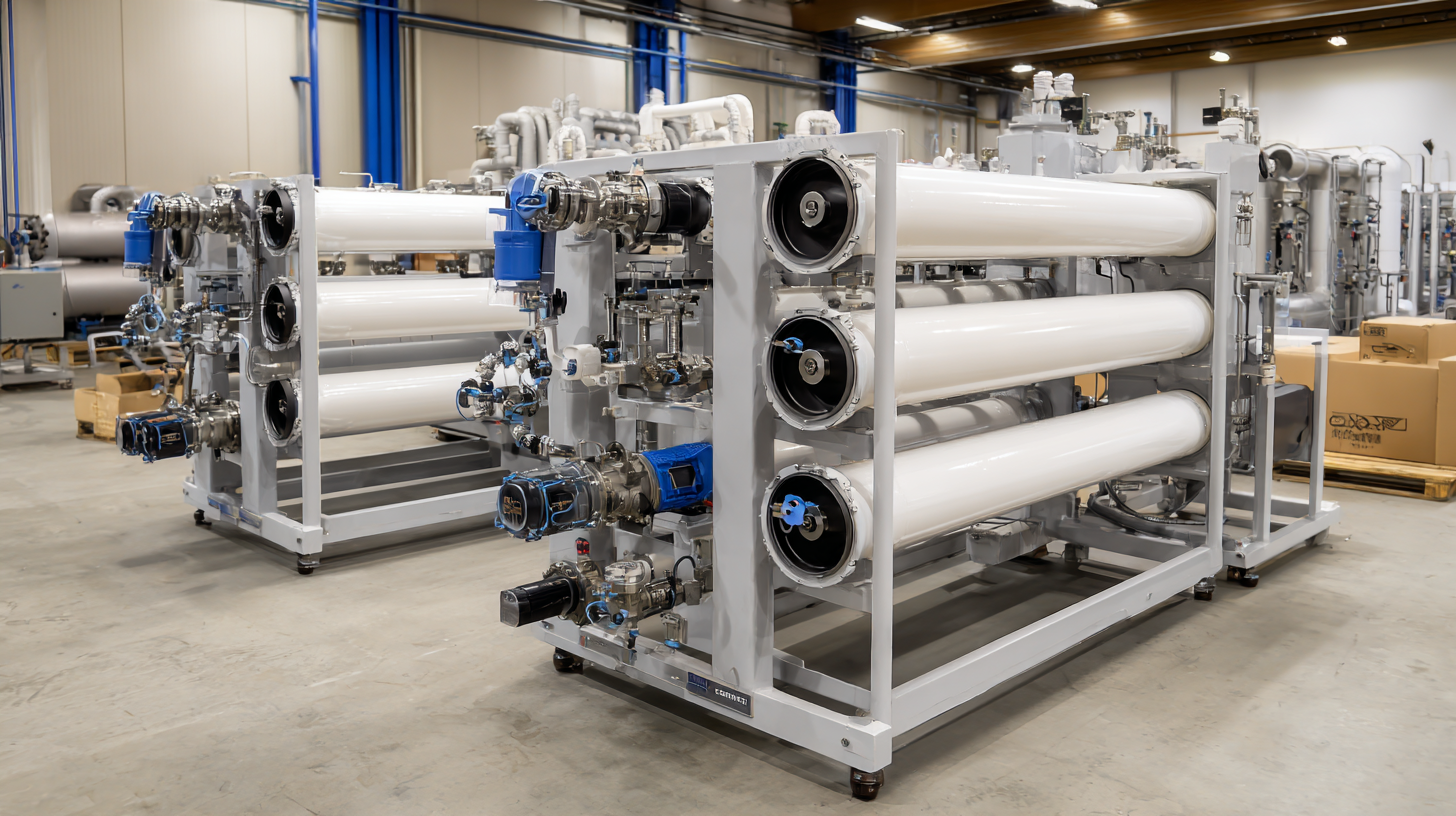Leave Your Message
Request a Quote
In an era where water scarcity and quality are at the forefront of global concerns, the significance of Ultrafiltration technology cannot be overstated. As industries and municipalities seek efficient solutions for water treatment, the demand for superior Ultrafiltration suppliers has surged. This blog aims to unlock quality sourcing strategies that can help businesses identify and partner with the best Ultrafiltration manufacturers worldwide. With China's manufacturing prowess leading the way, understanding the nuances of supplier selection becomes essential. By exploring proven tactics and insights, we will guide you through the landscape of Ultrafiltration sourcing, ensuring you can harness the advantages of high-quality filtration systems for your projects. Join us as we navigate this critical journey to secure reliable and effective Ultrafiltration solutions.

Ultrafiltration (UF) is a versatile membrane separation process that plays a critical role in various industries. By effectively removing suspended solids, bacteria, and macromolecules, ultrafiltration serves as a crucial step in water treatment, food and beverage processing, and biotechnology. Its ability to operate under low pressure while maintaining a high throughput makes it an attractive option for producers looking to enhance product purity and safety.
Key features of ultrafiltration systems include their selectivity and operational efficiency. Different membrane materials, such as polyamide and polysulfone, offer unique benefits that cater to specific applications. For instance, in the dairy industry, UF is commonly employed for whey protein concentration, while in water treatment, it helps in ensuring compliance with stringent contamination standards. With advancements in membrane technology and process automation, ultrafiltration continues to evolve, solidifying its importance in the global market. Understanding these key features and applications aids stakeholders in making informed decisions, ensuring the right suppliers and systems are sourced to meet their needs effectively.
| Supplier Location | Membrane Material | Application Area | Module Configuration | Production Capacity (m2/year) |
|---|---|---|---|---|
| North America | Polymeric | Water Treatment | Spiral Wound | 500,000 |
| Europe | Ceramic | Food and Beverage | Plate and Frame | 300,000 |
| Asia | Polymeric | Pharmaceutical | Hollow Fiber | 400,000 |
| Oceania | Composite | Desalination | Spiral Wound | 200,000 |
| South America | Ceramic | Textile | Plate and Frame | 150,000 |
When evaluating the quality of ultrafiltration suppliers, it is crucial to establish clear and objective metrics that can guide your selection process. One fundamental metric is the supplier's track record in meeting industry standards and certifications. Ensuring that a supplier adheres to recognized certifications like ISO 9001 can serve as a primary indicator of consistent quality in their products and services. Furthermore, examining their production processes and technology can reveal their commitment to innovation and compliance with the latest industry practices.
Another vital aspect is customer feedback and satisfaction ratings. Gathering testimonials or case studies from previous clients can provide insight into the reliability and effectiveness of the supplier's ultrafiltration systems. Engaging in direct conversations with references can also uncover potential issues or strengths that aren't readily apparent in marketing materials. Additionally, analyzing the supplier’s warranty and support policies allows businesses to assess their commitment to post-sale service and product quality assurance, further enhancing the overall evaluation process.
Strategic partnerships play a crucial role in sourcing the best ultrafiltration suppliers worldwide. As the demand for high-quality water treatment solutions grows, companies are increasingly recognizing the importance of collaboration to drive innovation and improve service delivery. Recent developments highlight the significance of these alliances, such as the collaboration forming between various companies aimed at creating advanced autonomous filtration systems. These innovations are particularly critical in delivering safe drinking water to remote and disaster-affected areas, showcasing how strategic partnerships can address urgent global challenges.
In a landscape marked by modernization initiatives, such as the recent contract awarded to a supplier for a desalination plant in Iraq, building relationships with top ultrafiltration suppliers is more than just a business strategy; it is a necessary approach to meet the evolving needs of municipalities and industries. Furthermore, long-term cooperation agreements between leading suppliers indicate a shift towards sustainable practices in water treatment technology, emphasizing the synergy created through strategic partnerships. Such collaborations not only enhance product offerings but also ensure that suppliers remain competitive in a rapidly changing market.

In today’s competitive market, sourcing ultrafiltration solutions requires not only quality but also cost-effectiveness. As the Hollow Fiber Ultrafiltration Market is projected to reach USD 4.85 billion by 2030, businesses must adopt proven tactics to maximize value from suppliers. Understanding the market dynamics can lead to better negotiations and robust partnerships that focus on achieving long-term sustainability.

One key strategy is leveraging innovative approaches to valorize byproducts, particularly gleaned from industries such as agro-food. By addressing the significant waste and byproducts generated globally, companies can reduce costs while enhancing the overall value of their ultrafiltration processes. This not only minimizes waste but can also open up additional revenue streams, providing an edge in cost management and sustainability. Implementing these strategies enables businesses to make informed decisions while unlocking the full potential of their ultrafiltration supplier relationships.
In the ever-evolving landscape of ultrafiltration technologies, the selection of suppliers has become increasingly influenced by global market dynamics. Recent projections indicate that the global tangential flow filtration market, currently valued at approximately $1.76 billion in 2024, is set to grow to $3.20 billion by 2030, showcasing a robust CAGR of 11.4%. This growth is a testament to the increasing demand for efficient filtration solutions across numerous industries, prompting organizations to adopt strategic supplier selection processes that align with these global trends.
Additionally, the hollow fiber ultrafiltration market is projected to reach $4.85 billion by 2030. This significant increase highlights the critical role that ultrafiltration technologies play in sectors such as pharmaceuticals, food and beverage, and wastewater treatment. As companies navigate these market shifts, sourcing the best suppliers becomes essential. The industry's focus on predictive maintenance capabilities reflects a broader trend toward enhancing operational efficiency and reliability, which directly impacts the criteria for evaluating potential ultrafiltration suppliers worldwide. Key insights from these evolving market dynamics will empower businesses to make informed decisions in their supplier selection processes.

